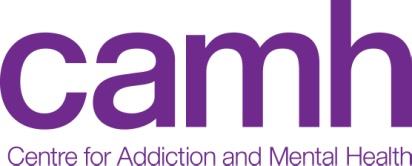
Obesity Awareness Scale and Insight Scale (OASIS)
Non-Confidential Summary
Market Need
Metabolic Syndrome (MetS) is a group of metabolic conditions, such as hypertension, diabetes and obesity, that raise an individual’s risk for heart disease and stroke. MetS is highly prevalent in individuals with psychotic disorders, and mortality rates from MetS are estimated to be 2-3 times higher than the general population and result in a 20% shorter life expectancy. Impaired illness awareness in MetS and obesity are under-recognized and contribute to medication nonadherence and poor clinical outcomes. Individuals with schizophrenia have a 2.8-3.5 times increased likelihood of being obese and those with MDD or bipolar disorder have a 1.2-1.5 times increased risk. The advent of using atypical antipsychotics to treat psychotic disorders has also made obesity more prevalent as weight gain and metabolic disturbances are major adverse side-effects related to these medications. Patients with psychiatric disorders are also less likely to seek treatment, further delaying the detection of comorbidities. Therefore, improving illness awareness among individuals may facilitate medication adherence, reduce morbidity, and re-hospitalization rates, thereby improving the quality of life for patients and their families. A number of scales have been developed to measure illness perceptions in metabolic disorders and diabetes; however, these measures are not specific to the quantitative assessment of illness awareness or illness denial in these conditions. Further, most are cumbersome and are difficult to use and interpret.
Technology Description
OASIS is a novel and easy to administer measure of insight into illness scale in obesity and related syndromes. The measure assesses the core domains of insight into illness, including awareness of need for treatment. With 10-point Likert scales for each item, this scale has the capacity to detect small changes in insight into illness and need for treatment adjusting scores. OASIS is designed to assess the multidimensional factor structure of insight into illness of obesity and its underlying causes. This is particularly useful in monitoring treatment outcomes, as a valuable addition to comprehensive clinical trial protocols.
Stage of Development
Investigators have clinically validated this scale in 100 participants. OASIS showed good convergent (r(98) = 0.65, P < 0.001) and discriminant validity, internal consistency (Cronbach’s ? = 0.89), and 1-month test-retest reliability (ICC = 0.76). An electronic version is under development, which will facilitate data storage for research studies and clinical use.
Advantages
- Specific to the quantitative assessment of impaired illness awareness or illness denial
- User friendly tool with the capacity to detect small changes in insight scores with the use of 10-point Likert scales for each item
- Provides a set of questions specific to diabetes that are within the niche of understanding patient awareness of their illness
- Offers a screening mechanism to determine which patients are most suitable for medication adherence programs or interventions to enhance medication adherence.
- Superior to self-reporting by patients, objective and comparable.
Notable Publication
Gerretsen et al. Obesity Medicine (2018). 9, 38-44
Business Opportunity
The Centre for Addiction and Mental Health is seeking partnerships with pharma, biotech and hospitals who may be interested in licensing this scale for use in clinical trials and patient assessment.
For more information contact:
Dr. Klara Vichnevetski
Director, Industry Partnerships & Technology Transfer
(416) 595-6056
Centre for Addiction and Mental Health
33 Russell Street, Suite 4039
Toronto, ONT, CDA M5A 2S1
